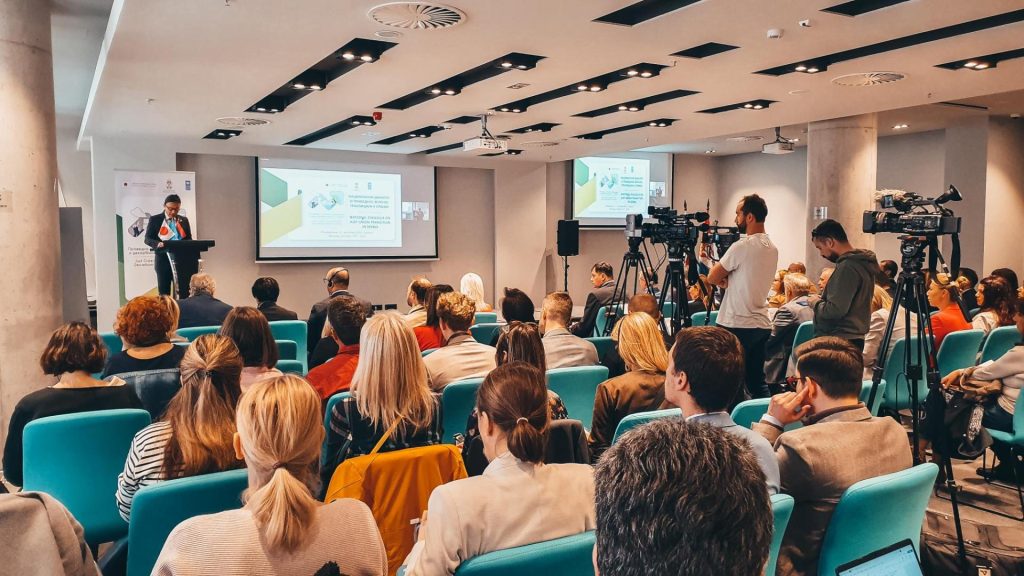
With the support of the Government of Japan, the United Nations Development Program (UNDP) organized the first in a series of dialogues on how to implement the green transition of the economy in Serbia in a just way, which respects the specificities of sectors and regions that are based on the intensive use of fossil fuels. The goal of the dialogue is to find a common response of the entire society on how to reduce the loss of jobs, implement timely retraining of workers and diversify sources of income in cities and municipalities that rely on coal production.
H.E. Takahiko Katsumata, Ambassador of Japan to the Republic of Serbia, noted that in Japan, central and local governments, private companies and financial institutions are working together to ensure a smooth transition to a decarbonized society. In particular, the Government of Japan e.g. organizes training of workers for new jobs, enables companies to change or diversify their field of business, works to attract green start-up companies and helps workers find a new job, emphasized Ambassador Katsumata, adding “Although there are many challenges in the transition, it can also be great an opportunity to promote industrial innovation and strengthen the connection between the economy and the environment”.
“A just green transition is a process that works for people.” If we carry out this process in the right way, we will ensure energy security, as well as a healthier and greener future not only for us, but also for generations to come. That is why we will work together with all workers, trade unions and individuals who are affected by this process”, said the Deputy Prime Minister of the Republic of Serbia and the Minister of Mining and Energy, prof. Dr Zorana Mihajlović.
Three panel discussions covering different aspects of the Green Agenda were organized. Program director of RES Foundation, Aleksandar Macura, participated in the first panel discussion, “How to slow down decarbonization in practice so that the green transition is fair.” He pointed out that the inclusion of all vulnerable groups by public policies is not easy, but the category of about one million households that are heated with solid biomass and fall under the category of energy poverty should be put in focus in a timely manner, especially in times of energy crisis. Local governments should get involved as soon as possible, in order to be well informed. It is necessary to set priorities for helping energy-poor households.
“It is necessary to involve local authorities to a greater extent in the dialogue on a just green transition, but also to establish cooperation in other activities such as, among other things, the creation of action plans and other documents,” said Macura.
